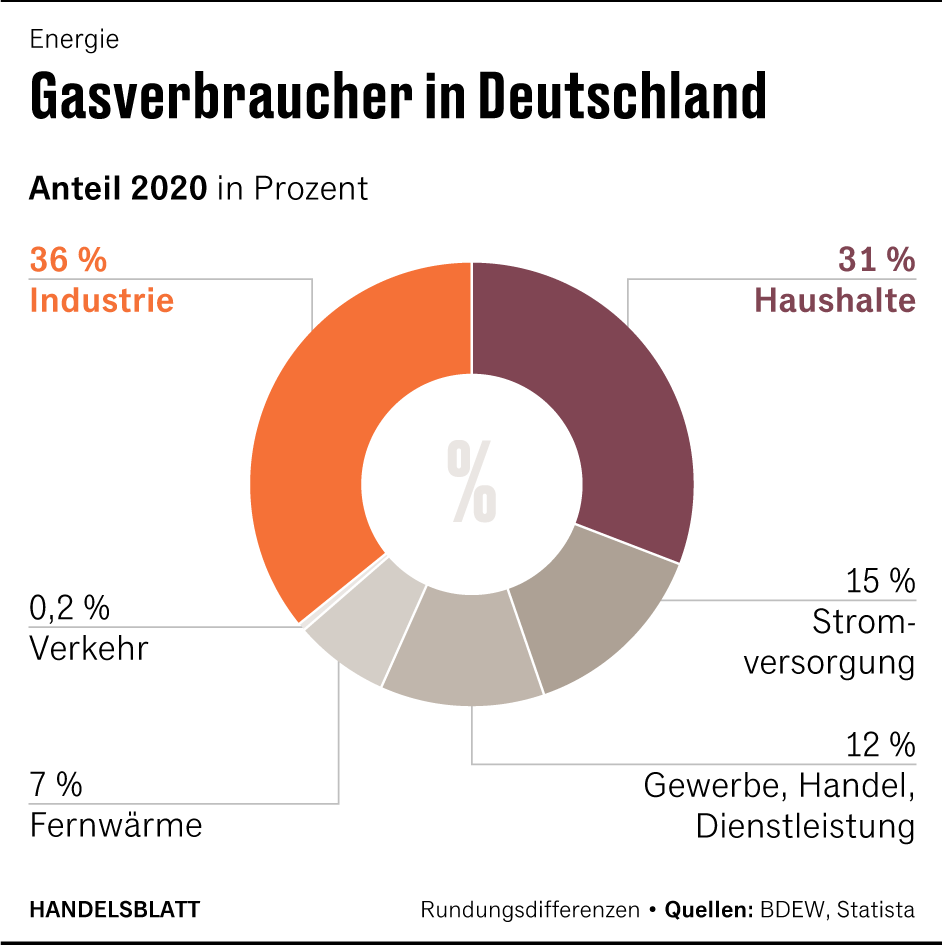The energy-intensive industry is concerned about rising gas prices as a result of the Russian war of aggression.
(Photo: dpa)
Berlin The companies that make up the Association of Industrial Energy and Power Industries (VIK) want to work with politicians to find solutions to maintain a secure supply of natural gas. According to a decision by the VIK board, the federal government should “immediately work with industry to find out where natural gas can be saved and replaced”. The approximately 300 member companies consume around 80 percent of the energy required for industry in Germany.
The association is convinced that it is essential to find solutions as quickly as possible in order not to jeopardize the security of supply. Natural gas consumers should be “given the opportunity at an early stage to submit offers in order to reduce their consumption on a voluntary basis,” the VIK decision continues.
In addition, the mobilization of additional gas capacities is of great importance. The same applies to options for replacing natural gas, at least temporarily, with other energy sources.
Industry accounts for around a third of natural gas consumption in Germany. Natural gas is an energy source for power and heat generation in industry, but in many cases it is also an important raw material, for example in the chemical industry.
Top jobs of the day
Find the best jobs now and
be notified by email.
Many companies are concerned about impending bottlenecks in the natural gas supply. If natural gas runs out, they could be the first to feel it. Because the applicable “gas emergency plan” provides that certain customers are protected, while others are not.
In practice, this would mean that private households, hospitals or system-relevant gas-fired power plants would continue to be supplied with natural gas in bottleneck situations, while industrial companies would be left empty-handed – with far-reaching consequences from production interruptions to massive damage to production facilities.
VIK General Manager Christian Seyfert sees Berlin as responsible: “We urgently recommend that the federal government immediately convene a task force with the participation of industry to update the gas emergency plan.”
The population and special infrastructure such as hospitals “of course have priority,” he said. However, the industry also needs a certain supply of natural gas, said Seyfert. “We have to organize that now.”
In addition to the tense supply situation, the cost situation on the energy market is difficult for industry to cope with. The VIK is therefore calling for relief from state-induced price components for electricity and gas as quickly as possible.
For example, the VIK is demanding a reduction in electricity tax from the current 2.05 cents per kilowatt hour to the European minimum rate of 0.05 cents. In addition, the CO2 price for the heat and transport sectors stipulated in the Fuel Emissions Trading Act (BEHG) must be suspended for the duration of the crisis. At the European level, the VIK is in favor of not further reducing the number of certificates in emissions trading and introducing a European industrial electricity price.
More: Import reduction by two thirds within one year: This is how Europe wants to become independent of Russian gas

